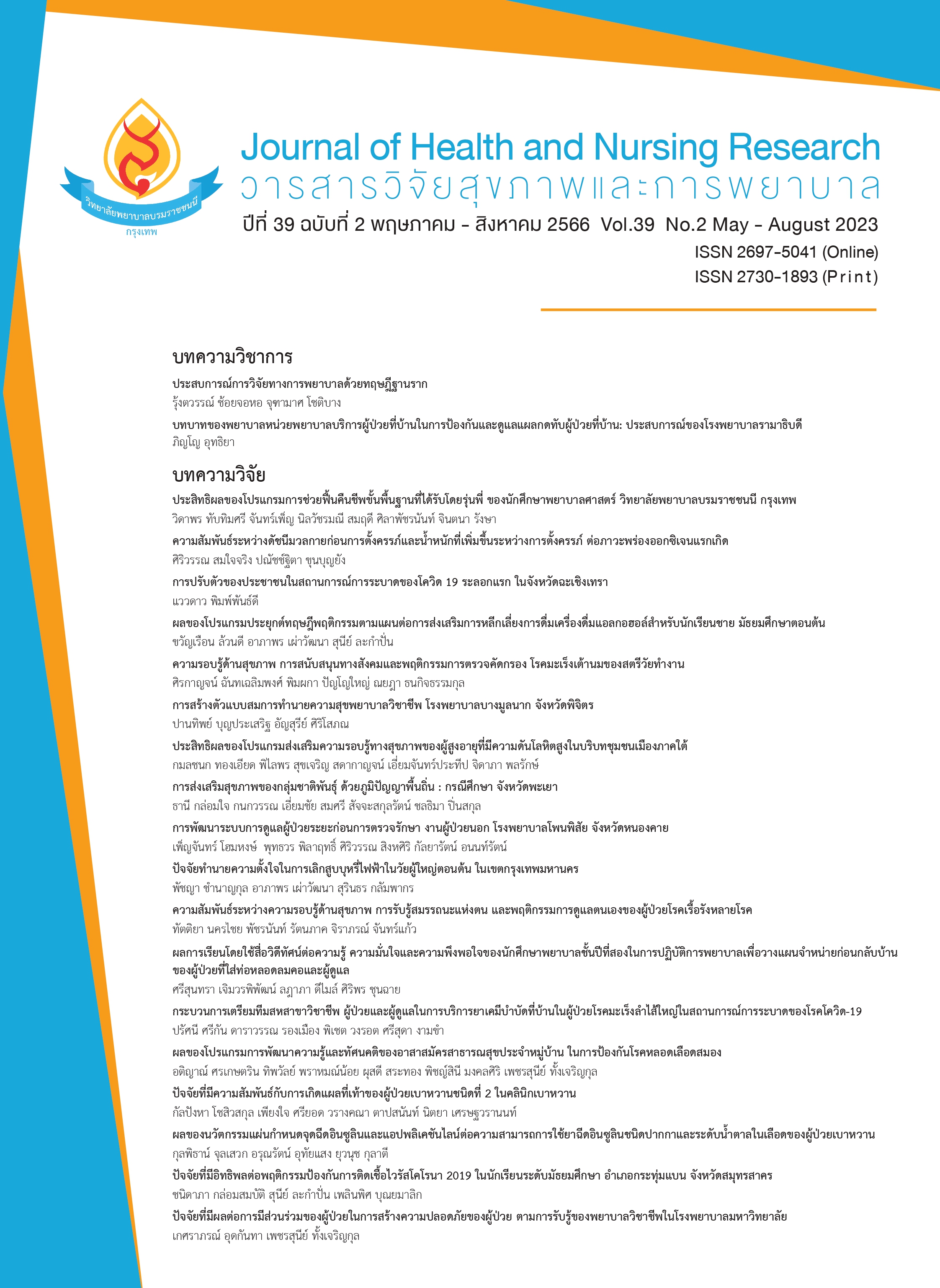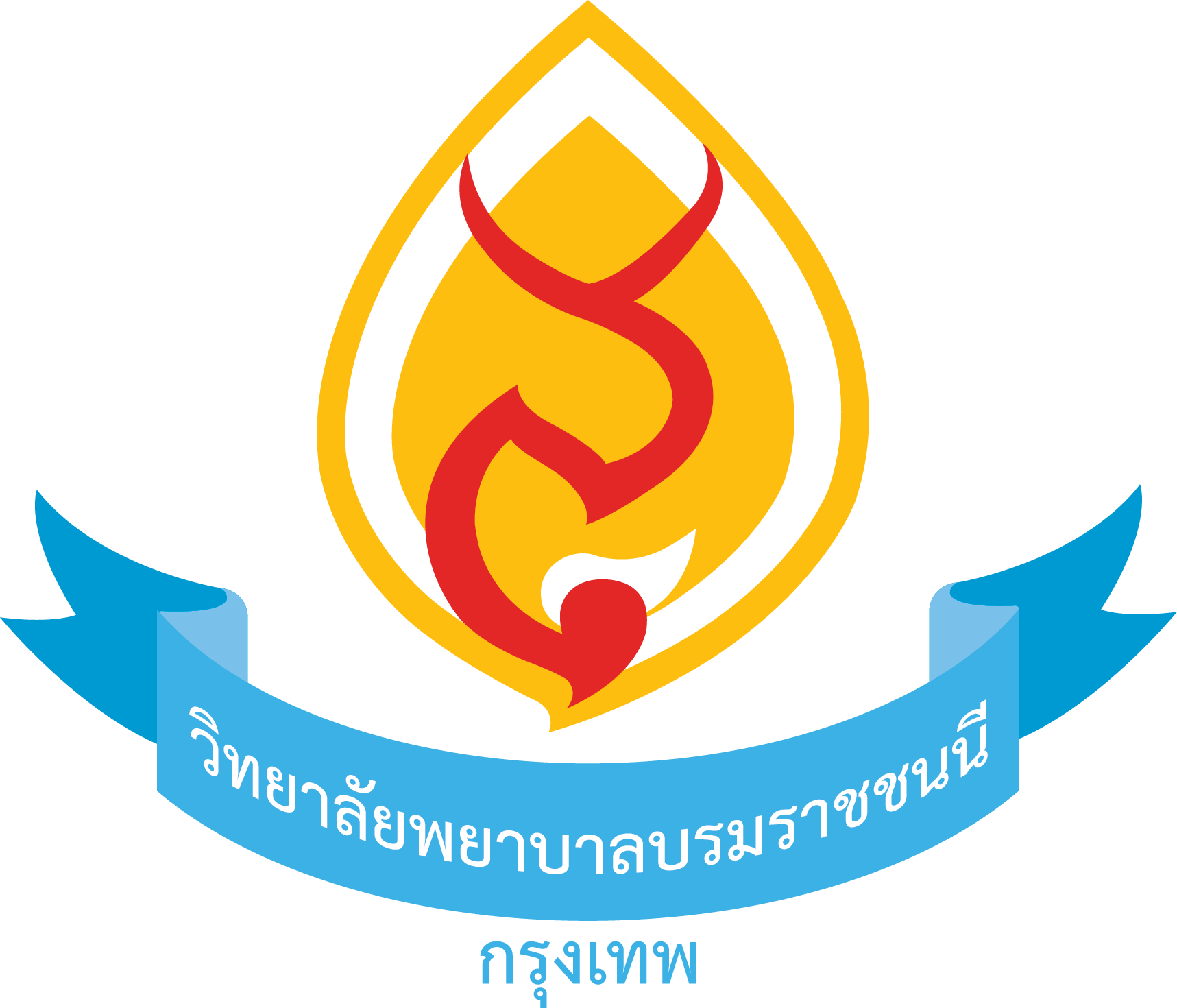The Effectiveness of Empowering The Health Literacy Among Elderly People With Hypertension Disease in A Southern-Thai Context
Keywords:
health literacy, elderly people, southern-thai contextAbstract
Introduction: For elderly people living with hypertension, health literacy is a concept that contributes to their self-care knowledge and proper caring of themselves.
Research objectives: This study aimed to examine the effectiveness of the health literacy promotion program, and knowledge acquisition in elderly people after receiving e program.
Research methodology: This explanatory sequential mixed method study consisted of 2 phases. Phase 1 wasa quasi-experimental study with one group-pretest and posttest design. Sample consisted of 60 elderly people with hypertension in Lang Suan District, Chumphon Province. Research tools were the health literacy promotion program and the health literacy scale. A Cronbach’s alpha coefficient of health literacy scale was 0.89; this was examined using a Paired Samples t-test. Phase 2 was a qualitative study using focus group discussions with 12 older people after receiving the program. Research instrument was a semi-open-ended question. Qualitative data were analyzed using content analysis.
Results:The overall significant improvement by participants between baseline and post-test was found for health literacy (t = 10.14, p < .05). Four issues of qualitative data were found to support the quantitative data as follows. Bed paralysis is a silent killer of hypertension. Avoiding salty foods and reducing added condiments are necessary. Controlling emotions and keeping the mind calm are important. And exercising regularly every day is crucial.
Conclusions: The health literacy promotion program can increase health literacy level and change behavior of the elderly people living with hypertension.
Implications: The health literacy promotion program should be used to organize learning activities for the elderly with hypertension to enhance health literacy and better caring of themselves.
Downloads
References
Sukcharoen P, Rakhab A, Thongied K. The Concerns of Seniors in Suratthani: Lessons Learned from an Elderly School. J Humanities and Social Sci 2019;11(1):61-81. (in Thai).
Thongied K, Sukcharoen P, Tanseng K, Meesit A, Kongkate P. A model for enchancing the quality of life among the elderly in Chang sai sub-district, Suratthani province. NRRU Community Research Journal 2022;16(1):116-28. (in Thai).
Popejoy LL, Galambos C, Stetzer F, Popescu M, Hicks L, Khalilia MA, et al. Comparing Aging in Place to Home Health Care: Impact of Nurse Care Coordination On Utilization and Costs. Nurs Econ 2015;33(6):306-13.
Nutbeam D, McGill B, Premkumar P. Improving health literacy in community populations: a review of progress. H promotion int 2018;33(5):901–11.
Ministry of Public Health. Situation of hypertension [Internet]. 2020 [cited 2021 Jul 7]. Available from: https://moph.go.th/index.php/news/read/275
Khantamoon R, Daenseekaew S. Self-Management among people with uncontrolled hypertension. J Nursing and Health Care 2017;35(2): 89-97. (in Thai).
Byrne D. Understanding and mitigating low health literacy. Nursing standard 2022;37(10):27–34.
Turner K, Rakkwamsuk S, Duangchai O. Health literacy of nursing students at Boromarajonani College of Nursing, Chonburi. J of health science research 2018;16(1): 1-9. (in Thai).
Wittink H, Oosterhaven J. Patient education and health literacy. Mus science & practice 2018;38:120–7.
Liu C, Wang D, Liu C, Jiang J, Wang X, Chen H, et al. What is the meaning of health literacy? A systematic review and qualitative synthesis. Fam Med Community Health 2020;8(2):1-8.
Halladay JR, Donahu K., Cene CW, Li Q, Cummings DM, Hinderliter A. et al. The association of health literacy and blood pressure reduction in a cohort of patients with hypertension: The heart healthy lenoir trial. Patient education and counseling 2017;100(3):542–9.
Department of Health [Internet]. 2019 [cited 2022 Sep 1]. Available from: https://mwi.anamai.moph.go.th/webupload/migrated/files/mwi/n1139_a5a9caa9ec03f3d810c1f83cb7da874e_article_2018 0924133139.pdf.
Sukcharoen P, Polruk J, Namnual S. The efficacy of program to promote health literacy of hypertension patients: A Case Study of Tha-Chi Subdistrict, Ban Na San District, Surat Thani Province. Suratthani: Suratthani Rajabhat University; 2021. Sponsored by Suratthani Rajabhat University. (in Thai).
Sorensen K, Levin D, Duong TV, Okan O, Brasil V, Nutbeam D. Building health literacy system capacity: a framework for health literate systems. H promotion inter 2021;36: 13–23.
Pannark P, Moolsart S, Kaewprom C. The Effectiveness of a Program for Health Literacy Development of the Patients with Uncontrolled Type 2 Diabetes at Bangwua District, Chachoengsao Province. NJ of the Ministry of Public Health 2017;27(3):91-106. (in Thai).
Nawsuwan K, Singhasem P, Yimyearn Y. Relationship and the Predictive Power of Social Support on the Practice of Hypertensive Patients. Borom C of Nursing, Uttaradit Journal 2016;8(1):1-13. (in Thai).
Kummak P, Kummak S, Kagmmunee M. Factors Related to Self-Care Behaviors among Patients with Hypertension. J of the Southern College of Nursing and Public Health Network 2015;2(3):74-91. (in Thai).
Aboumatar HJ, Carson KA, Beach MC, Roter DL, Cooper LA. The impact of health literacy on desire for participation in healthcare, medical visit communication, and patient reported outcomes among patients with hypertension. J Gen Intern Med 2013;28(11):1469–76.
Thepin K, Moolsart S, Jantacumma N. Effectiveness of a Health Literacy Developmental Program in Patientswith Uncontrolled Hypertension. Borom College of Nur, Uttaradit Journal 2019; 11(1): 197-212. (in Thai).
Downloads
Published
How to Cite
Issue
Section
License
Copyright (c) 2023 Journal of Health and Nursing Research (Journal of Boromarajonani College of Nursing, Bangkok)

This work is licensed under a Creative Commons Attribution-NonCommercial 4.0 International License.
Article published Is the copyright of the Journal of Health and Nursing Research (Boromarajonani College of Nursing, Bangkok) Cannot be republished in other journals


















